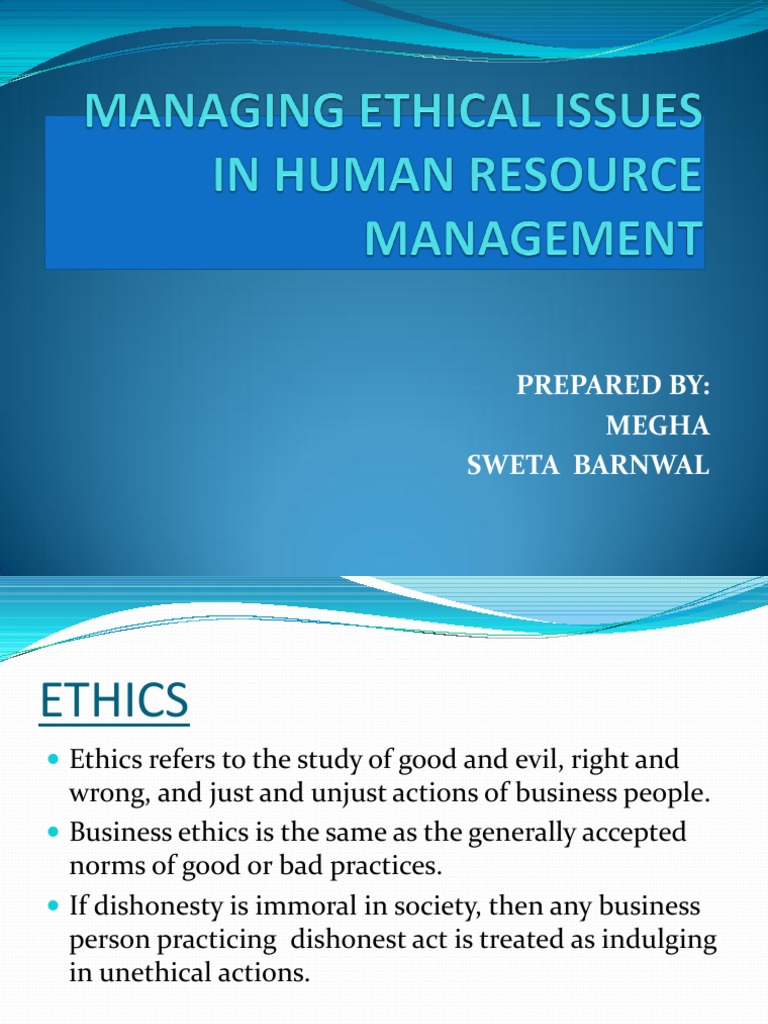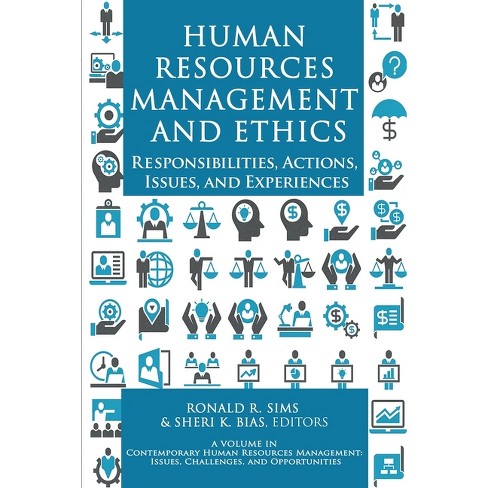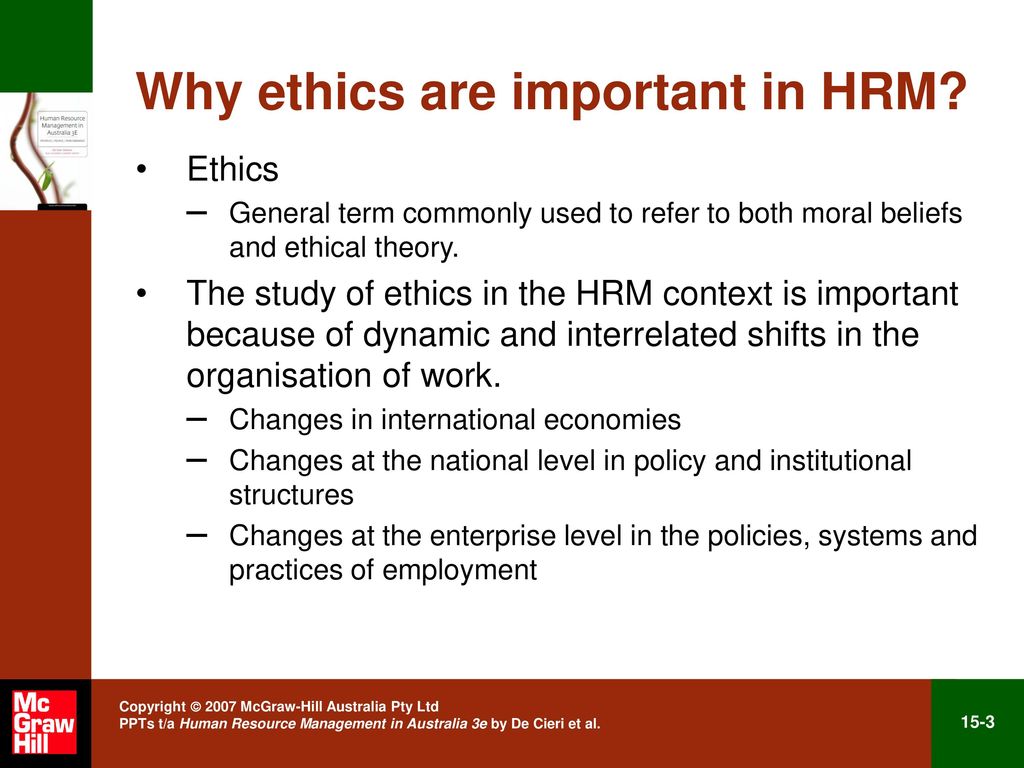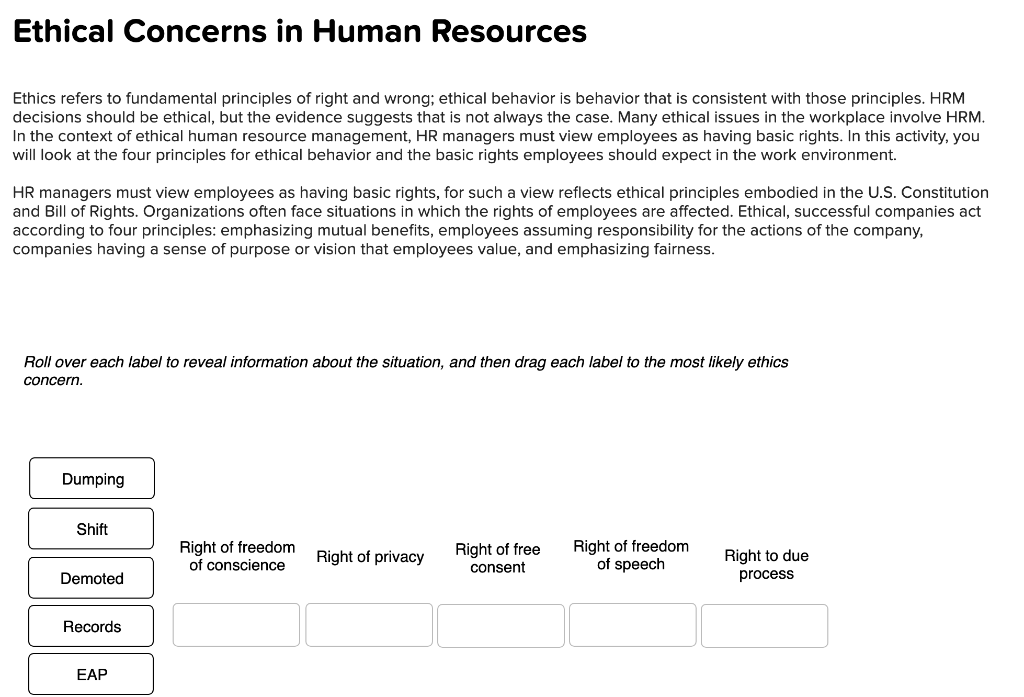Ethics and human resource management are closely interrelated and play a crucial role in the success of any organization. In the field of human resource management, ethics refers to the principles and values that guide the behavior of individuals and organizations in their interactions with others. It involves making decisions and taking actions that are fair, honest, and respectful of the rights and dignity of all stakeholders.
One of the key responsibilities of human resource management is to ensure that all employees are treated fairly and with respect, regardless of their race, gender, religion, or any other personal characteristics. This involves promoting diversity and inclusion, and taking steps to prevent discrimination and harassment in the workplace. It also means providing equal opportunities for career development and advancement, and ensuring that all employees have access to the same resources and support.
Another important aspect of ethics in human resource management is the protection of employee privacy. This involves respecting the confidentiality of employee information, such as personal data, medical records, and salary information, and ensuring that it is only shared with those who have a legitimate need to know. It also means not using employee information for any purpose that is not related to their employment, such as selling it to third parties or using it to make decisions about promotions or salary increases.
In addition to these issues, human resource professionals must also consider the ethical implications of their decisions and actions related to employee performance and discipline. This includes being fair and objective in evaluating employee performance, providing constructive feedback, and following established procedures for addressing performance issues. It also means avoiding any form of retaliation against employees who raise concerns about ethical violations or other issues in the workplace.
Overall, the ethical practices of human resource management are essential for creating a positive and healthy work environment, as well as for building trust and credibility with employees, customers, and other stakeholders. By prioritizing ethics in their decision-making and actions, human resource professionals can play a vital role in promoting the values and goals of their organization, and in contributing to its long-term success.
Ethics in the Field Of Human Resource and Management

You are also an advocate for the HR profession by engaging in activities that enhance its credibility and value. An employee can give their best when the needs and demands are fulfilled as well as when they are treated ethically. Over the years it has published special issues in cooperation with a number of professional associations, including the Society for Business Ethics, the Markkula Center for Applied Ethics, the Australian Association for Professional and Applied Ethics, and the Canadian Society for the Study of Practical Ethics. Ethics is a set of appropriate and inappropriate wrong actions that directly impact a workplace. Note that there are different types of ethics in HRM, and below, we have shared some of the significant ones to help you effectively manage your business. PROFESSIONAL DEVELOPMENT As an HR Management Institute certificant you must strive to meet the highest standards of competence and commit to strengthen your competencies on a continuous basis. When HR managers use anything other than talent, skills, and ability as evaluators for hiring, they help perpetuate stereotypes instead of building a workforce that reflects real life.
Ethics in HR and How to Implement it in Human Resources?

Most of the time people are treated badly in the workplace in the name of race, gender, and disability. As a result, your workers will be loyal and strive to impress you by putting more effort into work. If no response is received within the allotted 30 days, the complaint will be presented to a Staff Review Panel based on the information submitted. Recruitment practices Business firms that rely on referrals from existing employees to recruit new employees tend to recruit people only from those racial and sexual groups that are already present in the company. In free market system, employees and the employer are almost equally empowered, negotiation create win win situations for both the parties.
What Is the Role of Ethics in Human Resource Management?
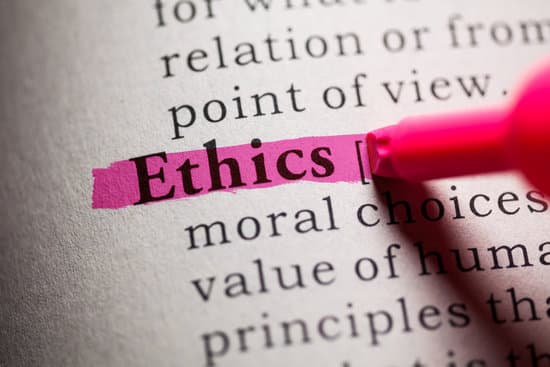
Kenneth Lay of Enron, Bernard Ebbers of WorldCom, Dennis Kozlowski of Tyco, Conrad Black of Hollinger Inc, and many more names have been Due to its role in the organization, the human resource management HRM department is at the frontlines of ethical problems concerning employees and employers. Ethics in HRM Introdution A human resource management team performs workforce planning — and development-related functions in an organization. This, however, requires a tremendous amount of innate authority and confidence. Sparrow and Hilltop, 1994 Ethical issues and practices of the human resource management are the subject of this article that comprehensively addresses the questions of ethical approaches to the wide range of functional areas covered by the human resource management: recruitment, training and development, motivation, retention and termination. It works for an environment that will maintain the confidence of employees and attract exciting new prospects. Ethics in HR is responsible for supporting and striving for better ethical standards in every activity related to human resources.
